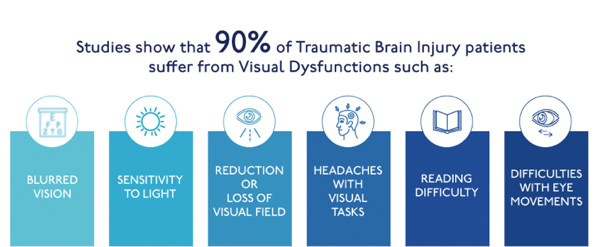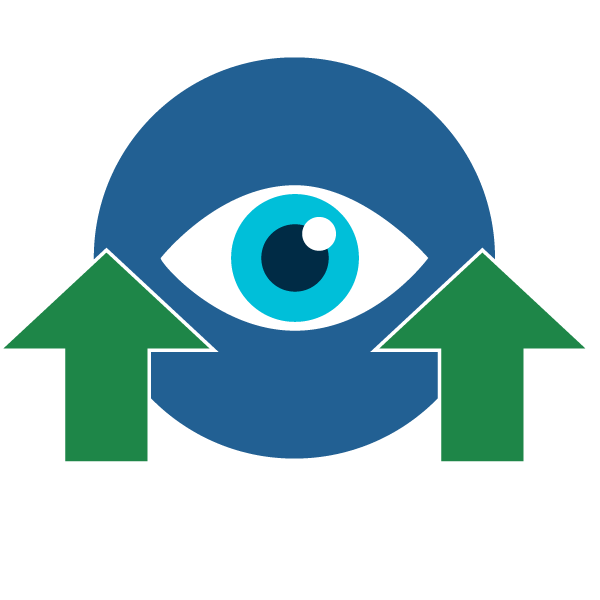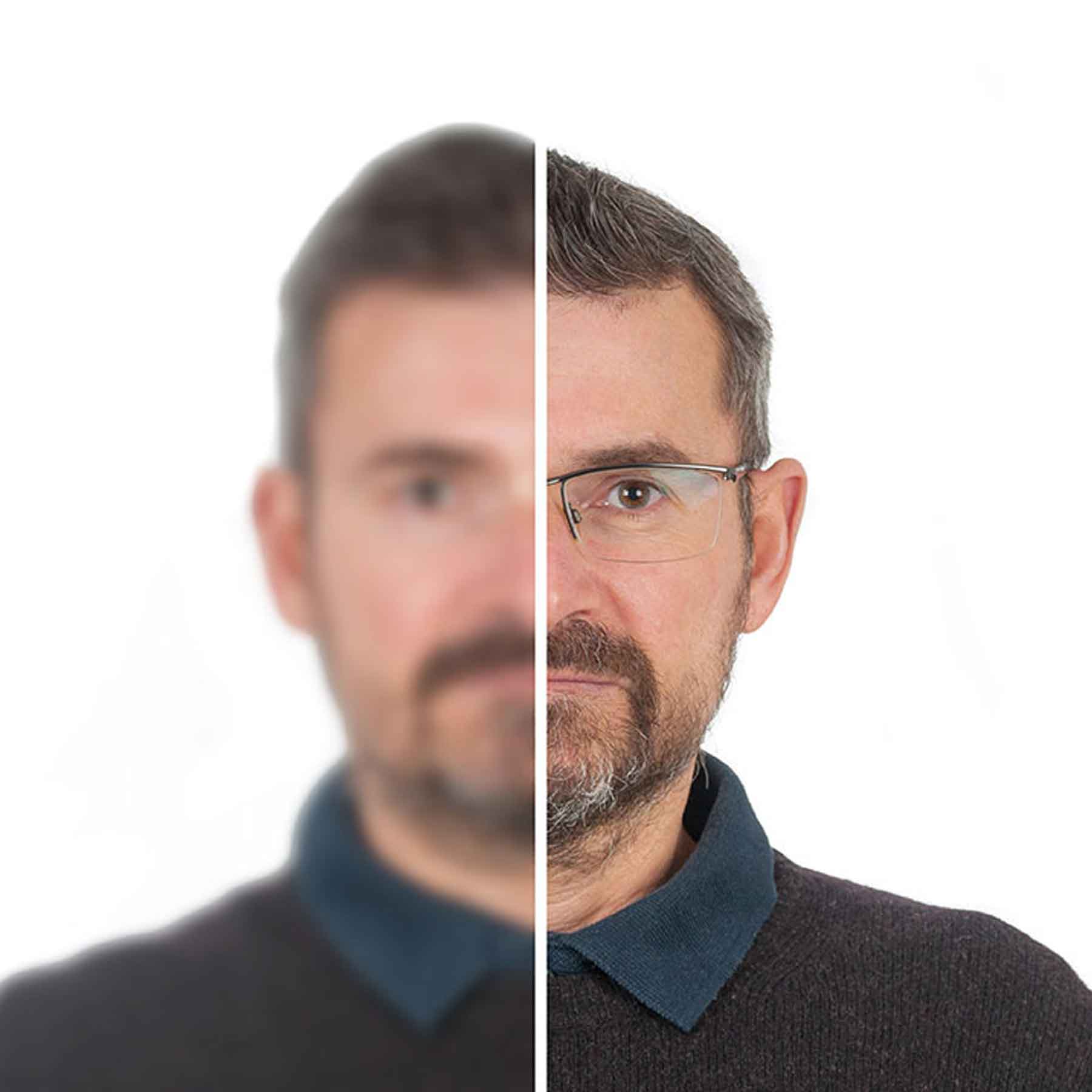Head Injury Got You Dizzy and Seeing Things?
It may be in your head. And by that we mean, you may actually be suffering vision issues because of a brain injury or a concussion. Here’s why: to be blunt, concussions damage neural pathways.
Eye-Brain Connection and Head Injuries
We talked about the how brain injuries affect vision before (for a refresher, The Eye & Brain Connection), and how all TBIs can create vision problems. This time, however, we are going to focus on one particular TBI – concussions – and how they can affect your eyesight and cause vision problems as well as other issues. Concussions are known as mTBIs, or minor traumatic brain injuries. But don’t let the name fool you – concussions can be anything BUT minor and can wreak havoc on your body.
Facts and Figures

Studies have found that eye symptoms are a frequent side effect of a concussion, affecting somewhere between 70-82% of concussed patients. “Among adolescents, nearly half had been clinically diagnosed with more than one eye symptom as result of their concussion.” (https://www.cognitivefxusa.com/blog/vision-problems-after-concussion)
According to NORA, 90% of all traumatic brain injury patients suffer from some combination of visual dysfunctions:
- Blurred or double vision
- Photophobia- sensitivity to light
- Reading difficulty
- Headaches
- Partial loss of visual field
- Difficulties with eye movements
- Eye or ocular pain
- Abnormal eye movements
- Visual motion sensitivity
- Vertical heterophoria
- And more
Why Do Vision Problems from Concussions Go Untreated?
Concussions lead to ocular as well as vestibular neurological impairments, so diagnosing the problem is not as easy as taking a simple visual acuity test. In fact, routine ophthalmic exams may look entirely normal. BUT visual acuity is NOT a reliable predictor of visual issues arising from a brain injury. Conventional eye examinations only measure sharpness and clarity of vision and thus simply don’t reveal a variety of eye problems, particularly those resulting from a concussion. These tests simply do not test for symptoms such as photosensitivity or headaches or fatigue, and they do not provide adequate information to diagnose oculomotor or visual dysfunction stemming from a concussion.
If you’ve suffered a concussion, you need to be tested not just for visual acuity, but also for problems with eye teaming, focusing, and tracking. You know, the visual stuff you need to be able to do everyday things like read and walk.
How We Measure What We See
There are two ways we measure what we see:

Central or Focal Vision
This relates to seeing fine details (and is often what a typical eye exam measures).

Peripheral or Spatial Vision
This relates to taking in information about what’s around us and where we are within that space. It stems from the combination of our vestibular (balance) system, our posture, our vision, and our proprioception.
According to Brainline, only using the measure of visual acuity to measure vision health misses the mark and results in under- or incorrect diagnosing because “vision is the process of deriving meaning from what is seen.” So, vision problems don’t always seem to be vision problems, if that makes any sense.
For instance, most people would chalk up a person’s feeling overwhelmed in highly stimulating environments as a mental health issue, NOT a symptom of a vision problem, and CERTAINLY NOT a symptom of a concussion. And yet, that is, indeed, a possible long-term symptom.
In addition, while it has long been well-known that vision problems accompany concussions, TBIs result from such a wide range of injuries that you might simply not even know you have suffered a concussion (and therefore wouldn’t even think to connect any health problems to it). In that case, neither you nor your doctor would even consider making the connection between your symptoms and a concussion. Add to that the fact that sometimes the symptoms don’t all show up immediately (and some might not show up at all) and you can find yourself very much in the dark, suffering and completely frustrated.
While there are myriad vision issues that arise immediately following (or within a few short weeks after suffering) a concussion injury, there are also plenty of more serious vision problems that develop after a delayed period of time. Because these symptoms take time to manifest, they often may be overlooked or not connected to the concussion, causing a delay in diagnosis. This is referred to as post-concussive syndrome. In a nutshell, post-concussive syndrome is a set of symptoms that lasts for a considerable amount of time after sustaining the concussion.
(Footnote: See Traumatic Brain Injury and Visual Disorder: What Every Ophthamologist Should Know, Clinical Update of American Academy of Ophthamology, March 2014)
If you are suffering from a concussion (or even if you don’t know if you are, but you are suffering from vision issues and haven’t been able to find relief), here are some things to look for:
Early Vision Symptoms from Concussions
Early symptoms can include:
- Light sensitivity (photophobia)
- Convergence insufficiency (which is basically a misalignment problem that causes the eyes to diverge when trying to focus on nearby objects, leading to....)
- Blurred/double vision (which likely stems from damage to the muscles and/or nerves surrounding the eyes)
- Headaches
- Abnormal eye movements
- Vision loss (partial or complete)
- Reading difficulties
- Eye pain, strain, and fatigue

Delayed Vision Symptoms from Concussions
A good 30% of concussion patients experience symptoms that begin 3 MONTHS after sustaining the initial TBI. Delayed symptoms can include all of the above symptoms PLUS:
- Loss of binocular vision (possibly due to eye misalignment)
- Difficulty with eye tracking and shifting your focus from one point to another
- Difficulty focusing overall
- Poor depth of field
- Overall fatigue
- Long-term light sensitivity
- Memory loss
- Balance problems
- Decreased ability to concentrate
- Getting overwhelmed in visually stimulating environments
- Tasks taking a LOT longer than they used to
- Coordination problems
- Accommodative disorders (whereby a patient cannot maintain focus or visual clarity for extended periods of time)
- Behavioral changes
Resources
Aside from our own additional informational content on the topic, here are some other resources we recommend you check out to learn more about vision problems stemming from concussions.
Neuro-Optometric Rehabilitation Association (NORA)
College of Optometrists in Vision Development (COVD)
Early diagnosis and treatment are key to healing from a concussion, and that includes healing vision problems incurred by the injury. Vision therapy can significantly help in this endeavor. If you are proactive about vision health by noting and addressing any vision changes as soon as you notice them, you can alleviate (and maybe even eliminate) the problems altogether.
If you are suffering from any of the above or treating a patient who is, it’s time to get a thorough test to figure out what, if any, vision problems are a result of a concussion.
For additional info read more on, how TBIs affect vision.

